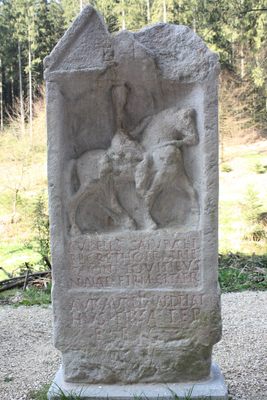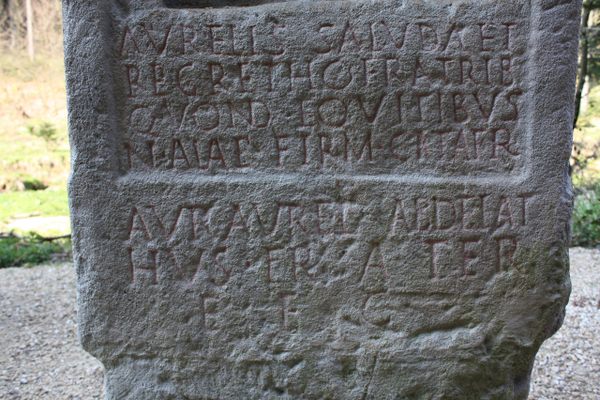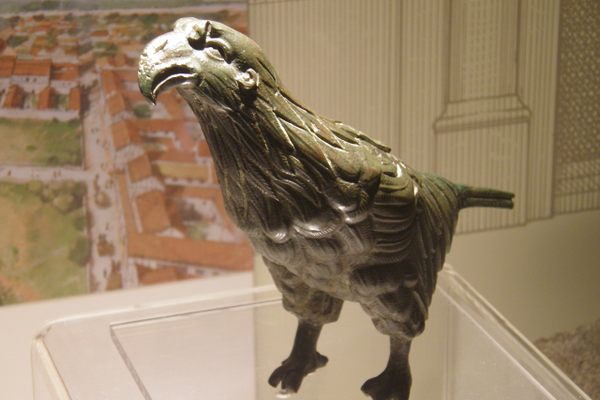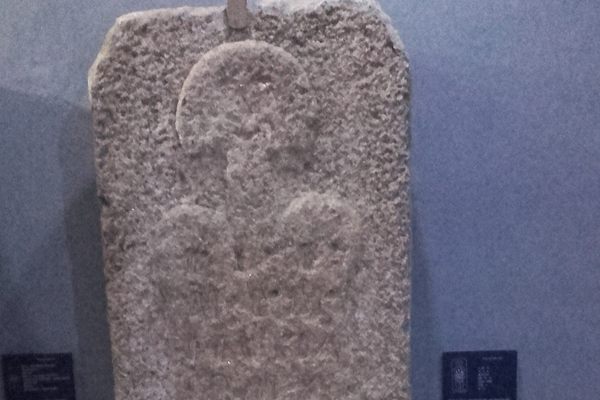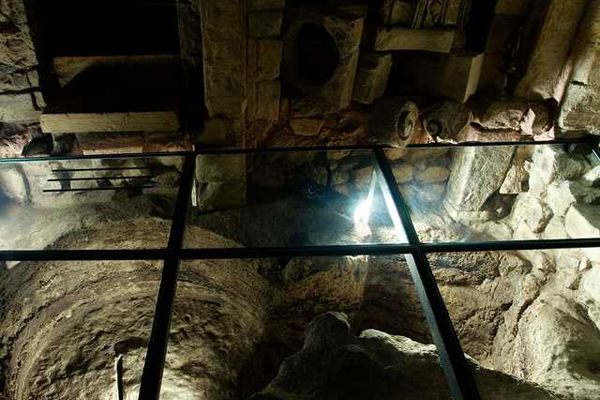About
This grave stele was found in an ancient burial ground in 1930 in Bad Cannstatt (Stuttgart), and it commemorates two brothers, named Aurelius Saluda and Aurelius Regrethus, who lived in the third century. They were likely to be mercenaries, and more specifically cataphracts, or heavily armored cavalrymen.
Another term used in ancient times for cataphracts was clinabari, which is derived from Greek and meant “camp-oven bearers,” probably a humorous comparison between the heated armored soldiers under the burning sun and an oven. According to the inscriptions, the two brothers served in the Ala Firma Catafractaria, a unit established in Mesopotamia and deployed all the way to the northern frontier of the Roman Empire from 222 to 235 in order to fight against the Alemanni.
Because of how powerful the units of cataphracts were in ancient warfare, before being deployed by the Romans the brothers had probably already fought many battles (and lived many adventures) together all around the ancient world, to eventually meet their ends fighting against a Germanic tribe, in what’s likely to be the battle of Harzhorn, 235.
This funerary monument is a beautiful and important testimony of how articulate and diverse the Roman army was, and the fascinating story it tells about two skillful warriors from ancient times can be still appreciated by us. Today the stele is preserved in Landesmuseum Württemberg.
Related Tags
Published
February 7, 2023

